Composers who work in film are devastated by the death from cancer of Beth Bobo Krakower, one of the leading marketing mavens in soundtracks and video games. Beth was 46.
A memorial site has gone up here.

Composers who work in film are devastated by the death from cancer of Beth Bobo Krakower, one of the leading marketing mavens in soundtracks and video games. Beth was 46.
A memorial site has gone up here.

Message to frequent flyers:
Customer data theft
We are investigating, as a matter of urgency, the theft of customer data from our website and our mobile app the stolen data did not include travel or passport details. From 22:58 BST August 21 2018 until 21:45 BST September 5 2018 inclusive, the personal and financial details of customers making bookings on our website and app were compromised. The breach has been resolved and our website is working normally. We have notified the police and relevant authorities. We are deeply sorry for the disruption that this criminal activity has caused. We take the protection of our customers’ data very seriously.
We are investigating, as a matter of urgency, the theft of customer data from our website and our mobile app. The stolen data did not include travel or passport details.
From 22:58 BST August 21 2018 until 21:45 BST September 5 2018 inclusive, the personal and financial details of customers making bookings on our website and app were compromised.
The breach has been resolved and our website is working normally. We have notified the police and relevant authorities.
We are deeply sorry for the disruption that this criminal activity has caused. We take the protection of our customers’ data very seriously.
What to do if you have been affected
If you believe you have been affected by this incident, then please contact your bank or credit card provider and follow their recommended advice.

This criminal hack appears to have gone undetected for two whole weeks. Where was BA’s data protection?
Caroline Stinson has joined the Ciompi Quartet, which is resident at Duke University.
She replaces Frederic Raimi, who has retired.
A Canadian, Stinson has been a member until now of the Lark Quartet.
The Ciompi Quartet was founded at Duke in 1965 by the Italian violinist Giorgio Ciompi.
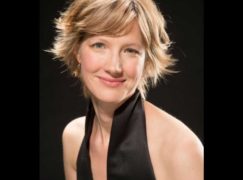
The gentle Claudio Scimone, founder of I Solisti Veneti and a brilliant reviver of lost Italian works, died today in his birthplace, Padua.
Among other notable achievements, Scimone gave the first modern performance of Rossini’s Mosè in Egitto and made a premier recording of the Clementi symphonies with the Philarmonia Orchestra in London.
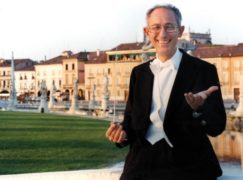
From a recruitment ad by the Symphony of the Americas on long-behind-the-times MusicalAmerica:
The Music Director position reports directly to the Board of Directors and is responsible for the furthering of the orchestra’s artistic potential and mission of supporting and developing community relationships as well as its international guest artist series, its summer music festival, its Serenades@Sunset series, and its varied educational programs. In furthering these goals, he is responsible for the musical programming, repertoire, and artistic production. He has the authority for the selection of musicians. The music director is expected to work directly with the Executive Director, the Board of Directors and staff in carrying out these responsibilities. He is also expected to be active in and attend all of the orchestra’s fundraising activities, as well as meet one-on-one with potential funders when appropriate.
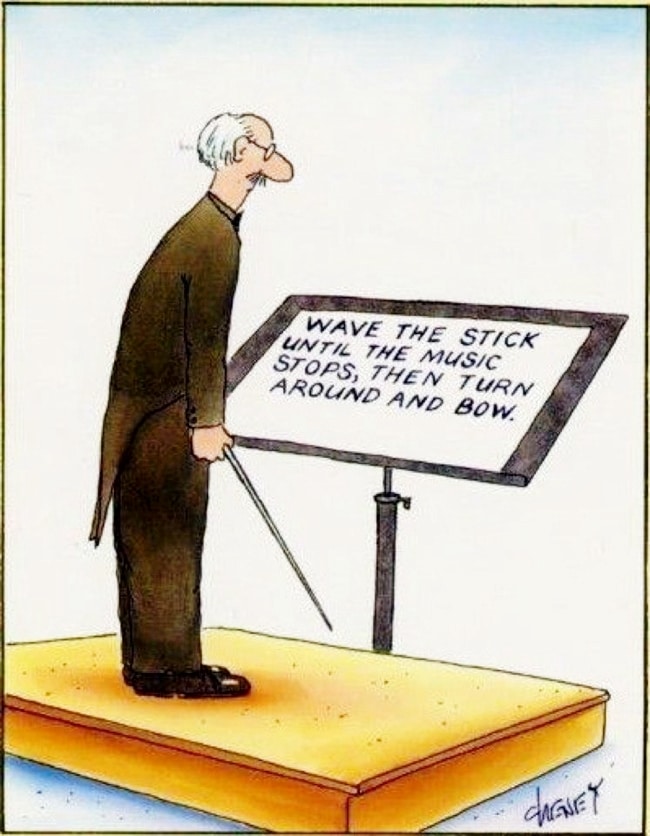
The abrupt departure of Matthias Pintscher as principal conductor of the Lucerne Festival’s academy orchestra has prompted a flurry of activity to fill his podium this week and next.
The conductors who have answered the call are Jaehyuck Choi, Peter Eötvös, and Ruth Reinhardt.
Choi, 24, is an Eötvös student, 1st prize winner of the Concours de Genève.
Reinhardt is former assistant conductor at Dallas Symphony.

The circumstances of Pintscher’s parting are no clearer yet, although insiders say he was not keen to go.
The Dutch violinist, who has been indisposed for several months, was last night declared the recipient of the Dutch state award, the Johannes Vermeer Prize, worth 100,000 Euros.
She will receive the cheque on 29 October in The Hague from Culture Minister Ingrid van Engelshoven.
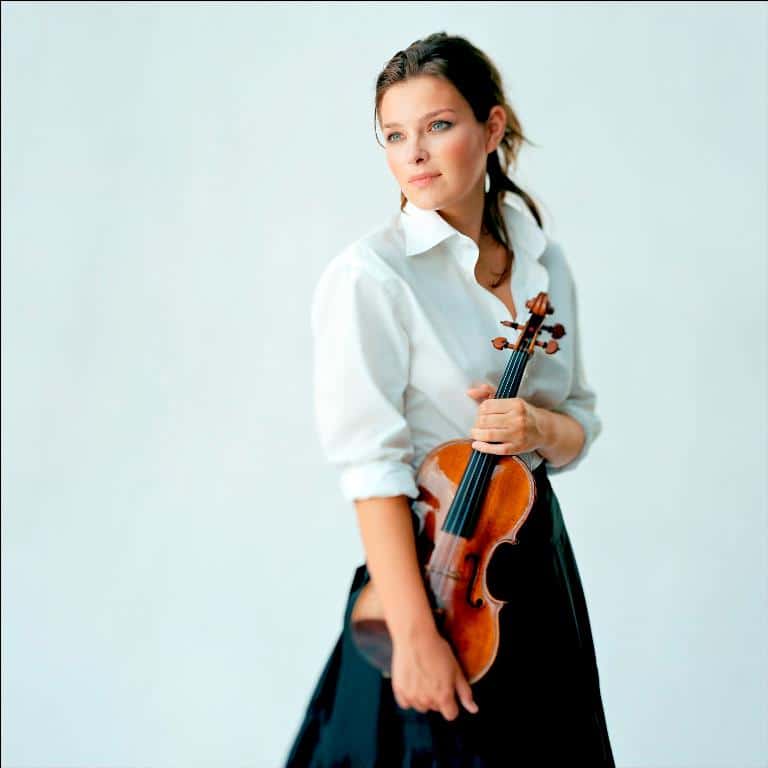
Statement just in from the Vienna State Opera and the Vienna Philharmonic Orchestra:
‘After the University of Music and Performing Arts Vienna dismissed a musician of the Vienna State Opera Orchestra and the Vienna Philharmonic Orchestra as lecturer in April 2018 with immediate effect, the management of the Wiener Staatsoper released the musician from his duties – the management of the Vienna Philharmonic shared this measure.
‘The Wiener Staatsoper and the Vienna Philharmonic immediately started looking into the matter in detail and, throughout the following weeks and months, had dozens of conversations in different groups with musicians (as well as substitutes) of both institutions – bringing in legal and psychological advice. These conversations did not bring up any allegation relevant under employment or criminal law. Therefore, there is currently no reason for further suspension: The musician will resume his duties in the Vienna State Opera Orchestra from September 17th – the management of the Vienna Philharmonic shares this measure.’
The musician concerned is a principal player in both orchestras. Clearance by his main employers will enable him to appeal against dismissal by the university. Further comment would be injudicious. Please do no mention names in any comments you may make.

The former head of Norway Opera will take over at Prague’s iconic National Theatre next summer, it was announced today.
There may be linguistic and cultural difficulties ahead.
Per Boye Hansen said: I have the deepest respect and admiration for your vast artistic heritage. Composers like Smetana, Dvořák, Martinů and Janáček represent an unique part of opera history, quite amazingly considering the relatively small country and language group they belong to. Both the opera company at Prague National Theatre Opera and State Opera, in order to achieve the desired level of international competitiveness, need to be strengthened throughout. I do feel highly motivated to use my experience and competence in order to increase the opera’s reputation and strengthen its position.’

Hansen was terminated in Oslo in 2015 amid long-running turbulence at Norway’s rickety opera house.
WNO has named Aidan Lang, General Director of Seattle Opera, as its next general director, starting in July 2019.
Lang, who is British born, said: ‘It will be a wrench to leave Seattle Opera, as the company is known around the world for its enthusiastic and generous opera community, and the warm and welcoming atmosphere it creates for its artists. But Welsh National Opera is where my career in opera really began, and I have always considered it to be my artistic home. It was during my time there in the 1980s that I came to understand the potential for opera to change the way that people view the society they live in, and that insight has been at the core of all my work ever
since. It is an incredible honour to be appointed as WNO’s next General Director.’
Lang will relocate to Wales with his wife, the singer and director Linda Kitchen, and their daughter, Eleanor. He replaces the outgoing artistic director, David Pountney.
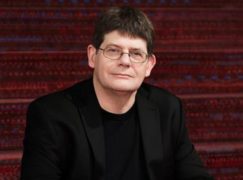
Our diarist Anthea Kreston is one of two players in the Artemis Quartet who will leave at the end of this season. The other is the last of the quartet’s founding members, Eckart Runge. So who, or what, makes a string quartet? Is it the musicians, or is it the name? These are trenchant questions. Here are Anthea’s thoughts:
Who are we? Are we the same person when we are a child, an adult, and at the end of life? Our values change, our situations and priorities change. The continuity of the self – is this a certainty? When did I become a violinist – will I still be a violinist after my hands permanently curl and can not grasp the neck of my violin (arthritis runs in my family, so this will certainly be my fate) – was I a violinist before I ever even touched my first instrument? Is being a violinist simply an extension of my base personality – does it exist separately from my physical self? If I become a paraplegic, I believe I would still identify as a violinist. What is our identity, and what is the identity of a string quartet?
The Ship of Theseus. Two thousand years ago, the Greek historian and writer Plutarch outlined a brilliant thought experiment – one which I believe relates particularly well to the news which was quite jarringly announced earlier this week. The news that the Artemis Quartet, that bastion of the German art form of the string quartet – my colleagues and dear partners for these past 2.5 years, will be, in 9 months time, traveling along different paths. The Artemis, like so many quartets before them, have weathered and become stronger through triumph and tragedy – through personelle change, the loss of a colleague by his own hand, the development from brilliant, idealistic youth to international road warriors, never compromising in their core beliefs and dedication to their art. They have pushed me, and themselves, every moment, to be our best, individually and collectively, and I have never felt more challenged, and more proud of my accomplishments as a member of this group.
So – back to Plutarch.
The founder of Athens, the famed hero Theseus, slew a Minotaur in a great battle, and returned triumphant to Athens in his magnificent ship. To honor this amazing feat, the citizens kept his ship in the harbor, every year taking it on a replicate voyage of Theseus to celebrate his victory. They painstakingly and lovingly repaired it, replacing boards, mast, until, 1,000 years later, the final board was replaced, and no original part of boat remained. Plutarch’s question is – is the „restored“ ship the same as the original?
So – is the Artemis Quartet the same group as it was in 1989, with Wilken Ranck, Isabel Trautwein, Volker Jacobsen and Eckart Runge? Was the ship that they sailed into victory the same ship that was sailed by Natasha, Vineta, Heime, Friedemann, Eckart, Gregor and myself? When I first boarded the Artemis, it certainly felt like a vessel which had seen many battles, which was both fluid and powerful, which had a crew that knew how to man the deck and a consortium of captains. And yet, through my tenure, boards were delicately replaced – a new feeling here, a slide which was once verboten now included. I am a very romantic, sentimental player, and my style was bent and formed into the forged steel bouts of this ship, while still allowing for a flexibility of a new approach. A great thing cannot stand still, it must be in constant flux – it must change and grow to survive and flourish. It must adapt.
And so – is the Artemis Quartet the same? Will it remain the same? The answer, like the answer to Theseus‘ Paradox, cannot be found. It is both the same and different. It learns from itself, follows the guiding principals of its youth, and it watches, listens and adapts, incorporates and expands. It gathers all strengths, all of the sweat and sacrifice of all of its members, past, present and future, to create something simultaneously new and old.
We must wait, we must be patient, we must give our hopes and dreams to the future. I, personally, will be in that audience for years to come, to watch not the re-enactment of the great virgin voyage, but rather the continued sailing of a ship, always searching for the next adventure, fearlessly forging ahead with conviction, the knowledge of the past, and the vision of the future. God Speed, Mighty Artemis!
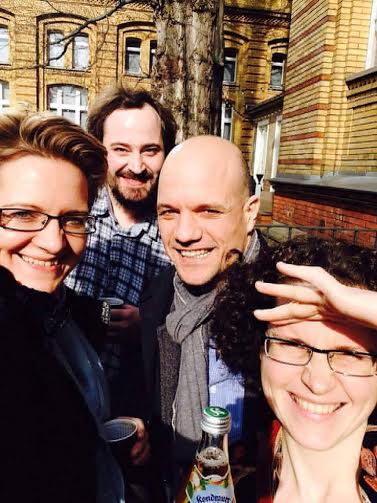
No further information is presently available.